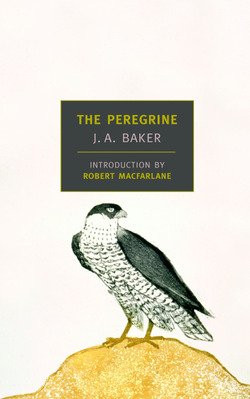Well, putting the Nature Book Reader together was quite a task and a few mistakes were bound to be made, but this was a big one; the total omission of the contribution from the great Jeremy Mynott. Apologies Jeremy, this oversight has now been corrected.
To go some way to make up for this, plus the fact that Jeremy’s choice, J.A. Baker’s The Peregrine, has just been re-published (with an introduction by Mark Cocker), we thought we should make it front page news. Jeremy will be joining us at the Port Eliot Festival this year as part of Ceri Levy’s Bird Effect session. More on that later this week.
On the ‘Desert Island Discs’ principle I’m picking three very different kinds of books to remind me of some of the different ways I respond to birds. First, John Clare’s poetry, which is the work of a man who finds things for himself, observes what he finds with great attention and describes it very tellingly (Gilbert White or Henry Thoreau would have been other good examples.) This is the naturalist’s response, drawn from experience. By contrast, Aristophanes, in his great comic play The Birds (412BC), treats birds as symbols for human hopes, fancies and ambitions – as reflections of ourselves. This is the response of the imagination, and we see such emblems and associations all round us (think robin, swan, peacock, eagle …).
But my favourite book combines these two modes of engagement, and in an extraordinarily powerful way. This is The Peregrine, first published in 1967 by the reclusive author J.A. Baker. It’s the story of one man’s obsession with a particular bird. He becomes fascinated with a peregrine that he encounters locally, and he stalks it for a whole year. He comes to know it intimately; indeed he comes to feel a kind of affinity with it and longs to be accepted by it. In a sense he wants to be the bird, and he uses it to express the way he feels, or wants to feel, about the natural world as a whole. The writing in the book is remarkable — it’s a very lyrical, elevated and daring kind of prose that could completely fail, or become too lush or rich or pretentious; but he pulls it off magnificently and I still find it very moving. The peregrine itself, of course, remains for most of us a very thrilling and charismatic species — which has interestingly gone from being a bird of remote places to a bird of our cities, but still brings with it the spirit of wilderness.
